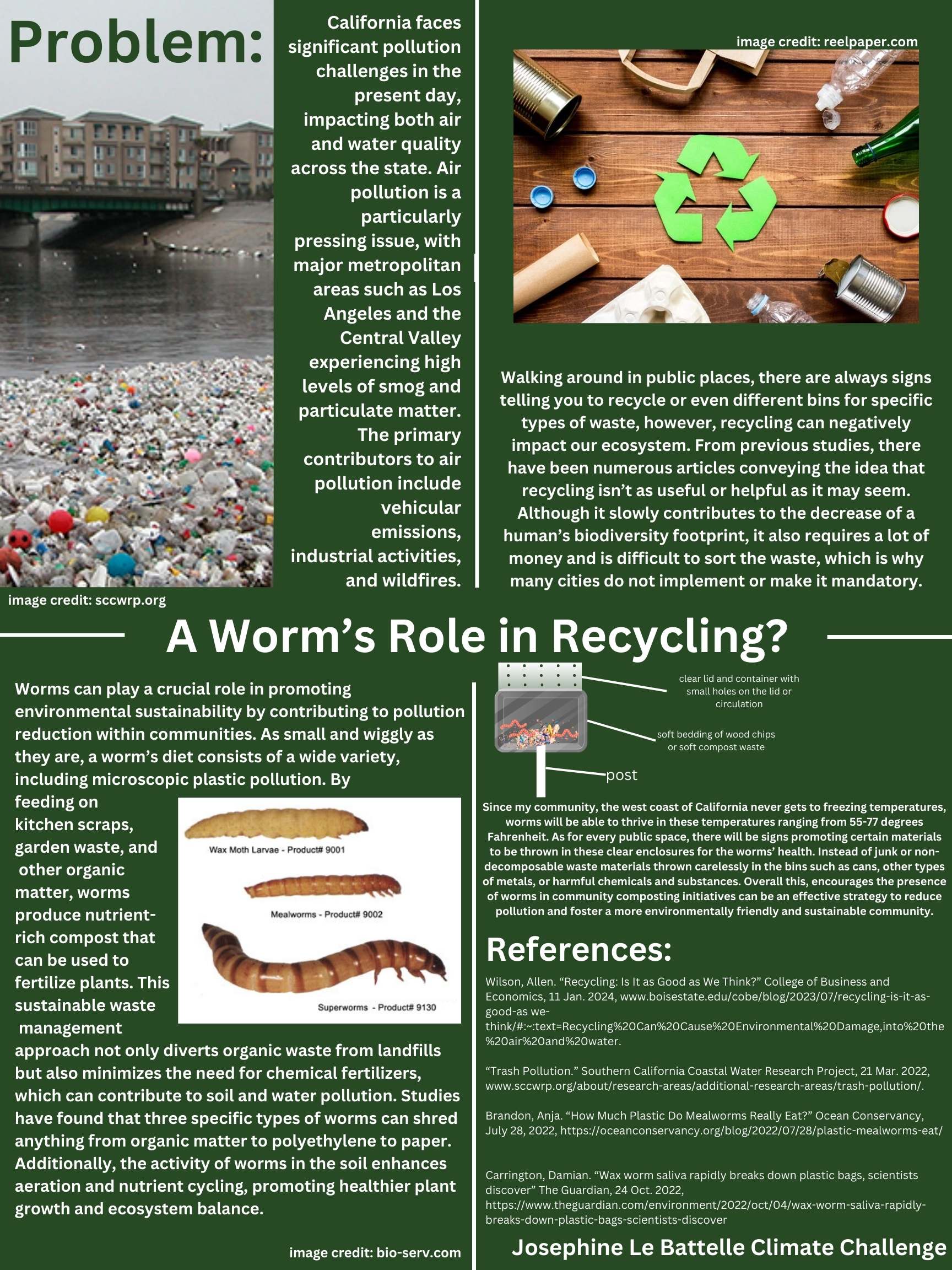Not only does recycling use great amounts of energy and water, but it’s also not cost-effective and can release dangerous chemicals. To solve this, my proposed climate action is to set up small, clear “trash cans” filled with worms. One significant way in which worms contribute to this effort is through vermicomposting, a natural process where worms break down organic waste materials. Plastic boxes with approximately thirty waxworms, earthworms, and mealworms combined, can be set on stands in public areas for waste disposal. Trash cans and other forms of recycling will still be around, but this small change can help reduce the effects of recycling and overall decrease rates of pollution. These worms can consume the plastics in a matter of hours, which is almost equivalent to taking out the trash and changing it for a fresh bag. For the worms’ health, inside these glass containers, moist bedding can be laid for proper homeostasis. For the dead worms, when trash cans are being taken out, worms can also be replaced and left for fertilization or decomposed material. This approach can reduce the effects of pollution and can overall be a big step towards a more sustainable environment.
Contact us
Thank you for your interest in contacting Future Engineers. We look forward to connecting with you!
General Inquiries
support@futureengineers.orgSponsorship Inquiries
sponsor@futureengineers.org
